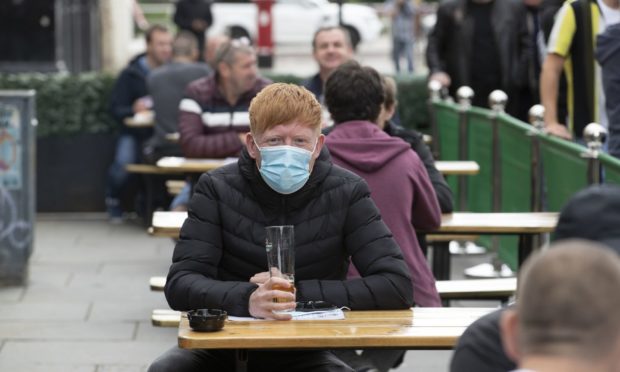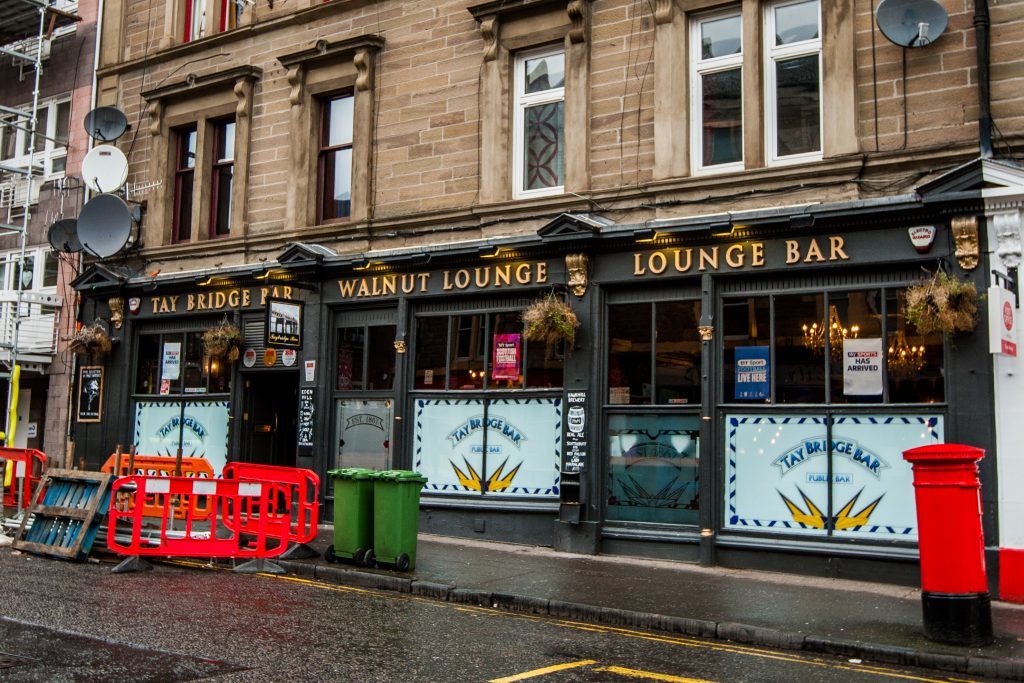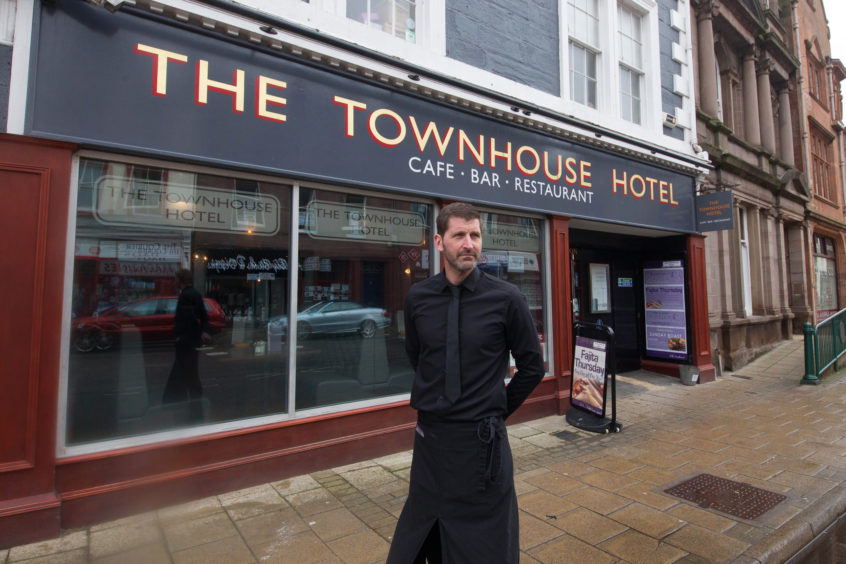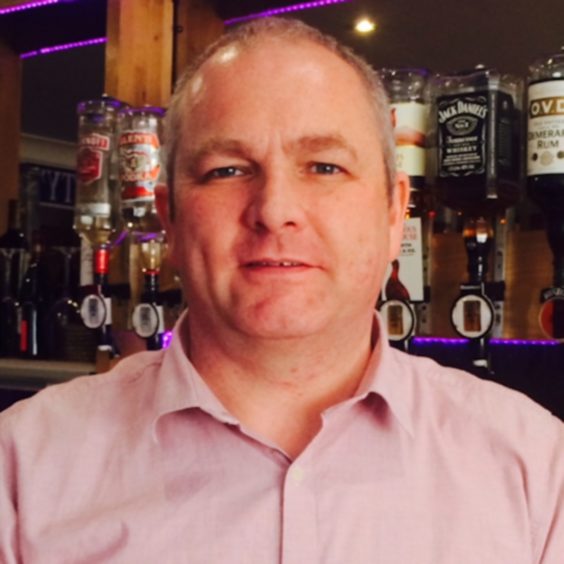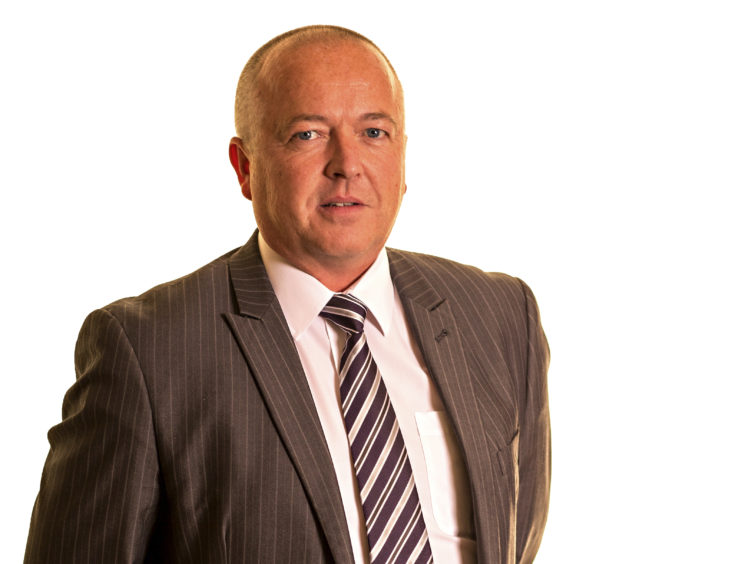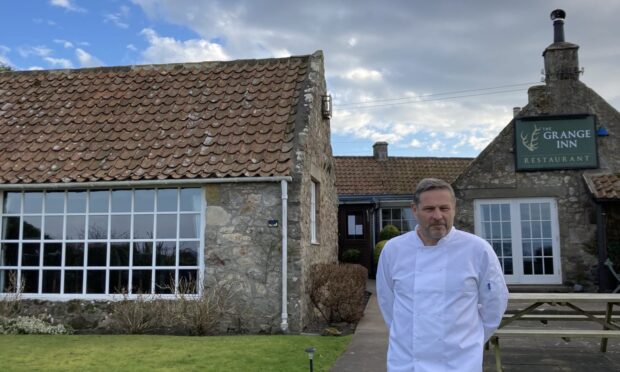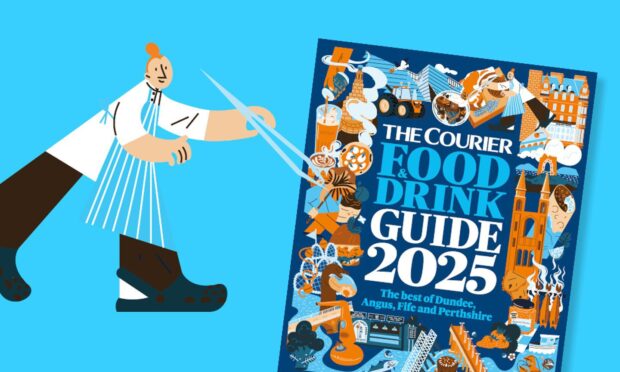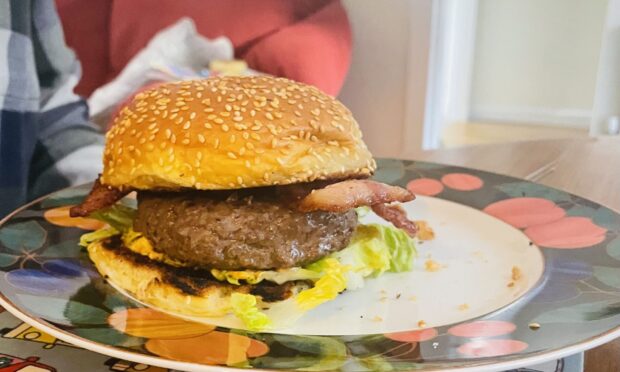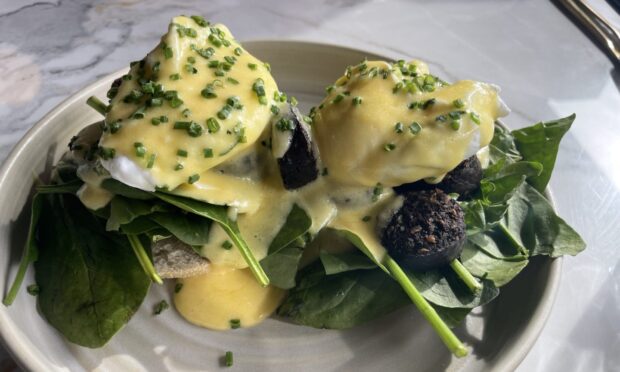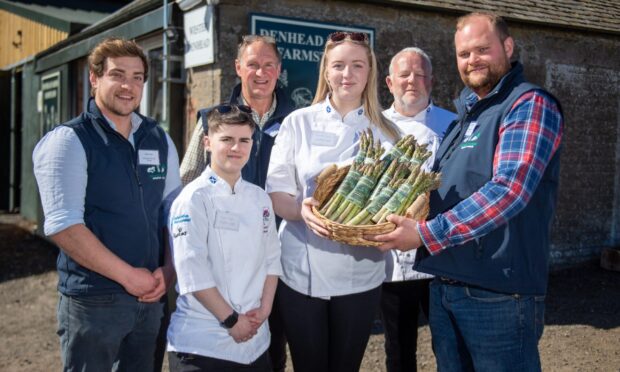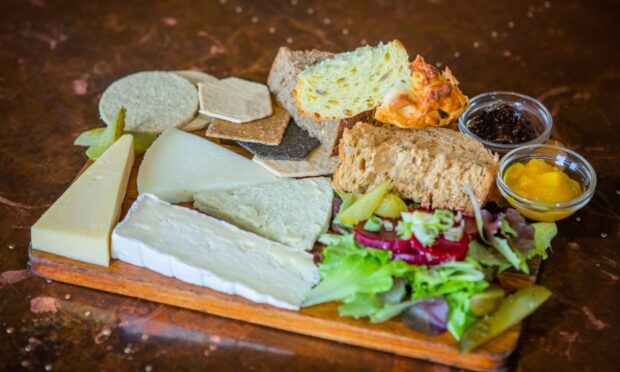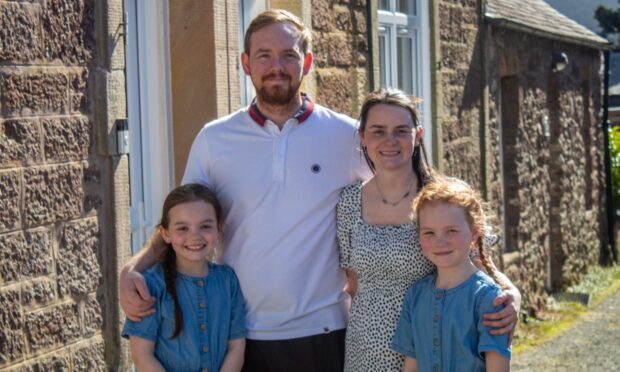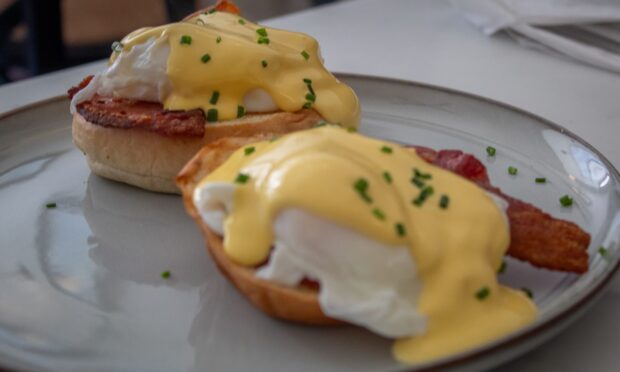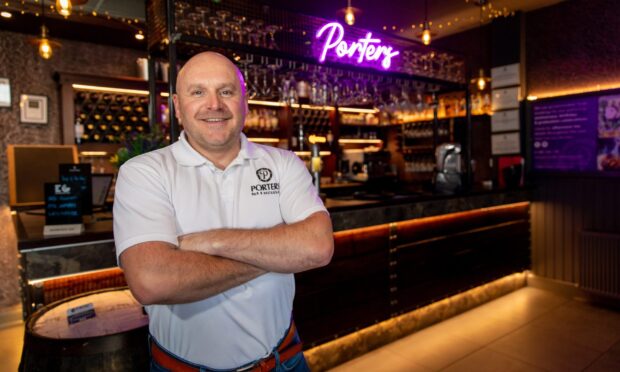With a curfew coming into place from Friday for pubs and restaurants across Scotland, and workers told to stay at home where possible, local businesses share what it means for them, and their fears that this will only lead to a rise in the number of illegal house parties.
After the once unthinkable happened in March, when hospitality businesses across Scotland and the rest of the UK were ordered to shut their doors completely, it seemed things could only get better when they were finally allowed to reopen in July.
The Eat Out to Help Out scheme launched by the UK Government to encourage people back into local restaurants, cafes and bars, brought a boost to some but not all in August. The need for one-metre social distancing and table-only service has reduced capacity in venues, and for most it has not been an easy road.
City centre businesses in particular have been adversely affected by continued absence of office workers – now, with work at home being encouraged for up to another six months, there is little hope of those regular customers returning any time soon.
Today the First Minister Nicola Sturgeon also announced Scotland would be moving in line with England by introducing a 10pm curfew in bars and restaurants from Friday in an effort to prevent a further surge in coronavirus cases.
Nationwide additional restrictions will also be put in place in homes, with indoor gatherings between households no longer permitted anywhere in Scotland. In bars and restaurants up to six people can meet from up to two households, under the recently announced “rule of six”.
But further restrictions on how we socialise means business keeps getting tougher for the hospitality industry. In response, the Scottish Tourism Alliance has called for the government furlough scheme to be extended beyond October, and for the temporary reduced VAT rate of 5% for hospitality businesses to be continued not just into next year but “for the long term”.
Local businessman Jimmy Marr, who owns several pubs and eateries in Dundee, including the Taybridge Bar on Perth Road, and Harlequins on Albert Street, 172 at The Caird on Perth Road, and Nicolls on Commercial Street, fears resulting job losses could be heavy when the Government’s furlough scheme comes to an end next month.
But rather than limiting opportunity for the virus to spread, he suspects that with a curfew in place some will abandon going to bars altogether in favour of throwing house parties where, though illegal, there would be no restrictions in place.
He said: “You might get people drinking earlier by imposing a curfew, but young people are are going to go home with drink from supermarkets and it’s going to create more house parties. That’s going to be a real problem. Some young people won’t go to pubs they’ll just go to parties instead. You see that already with students in St Andrews – it’s rife.”
Yesterday it emerged four St Andrews University students have tested positive for Covid-19 after an illegal freshers’ week party in a hall of residence. By limiting time spent in pubs, Jimmy Marr believes that trade – already down 50% in his pubs – will be further hit, and he wants to see the furlough scheme extended for the hospitality industry.
He added: “A lot of my older customers going to the community pubs are frightened to go out and it’s really really hard. When furlough ends at the end of October I think there’s going to be a lot of job losses.
“I don’t want to see pubs shutting, but if they could extend furlough past October it would be a help. I would rather keep pubs open because once doors close it’s hard to get them open again.
“I’d be hopeful customers will come earlier, but my gut feeling is that trade is going to drop further. Our pubs are down 50% on what they were were doing before lockdown. Curfew could mean some bars will close but if people are going to pubs there are regulations in place; staff have masks, there’s hand sanitiser, distancing, customers are wearing masks when they get up to go to the toilet. That’s not happening at house parties.”
‘We’ve imposed our own curfew since August’
Graeme Gersok, proprietor of the Townhouse Hotel in Arbroath which has a lively bar and restaurant trade, has been operating its own curfew at his premises for the past six weeks.
He said: “We have kind of being doing all that anyway to be honest with you. On the 7th of August we drew it back to 9pm, we were locking the door then. We didn’t throw anyone out but if you were in at that point you got to stay, but if you were out you didn’t get in.
“We are used to it and to be honest any responsible operator would be doing the same thing. I kind of agree with it.
“Six weeks ago I felt it was a good move to protect the public health and now it is a level playing field for everyone.
“It hasn’t made much difference to us. Because we weren’t letting people in after that point it didn’t really make much difference. In fact, people gained a little bit more confidence, particularly in the evening it gave older people more confidence to come and visit us safe in the knowledge that no one was having a pub crawl and dropping in to us.
“The first minister has made it 10 o clock when you have to be out, so we will probably continue with our 9 o clock locking the door and we will let everyone drink until quarter to 10 – whatever the detail is we will just follow it.”
Graeme, who has owned the Townhouse for almost seven years, added: “Ultimately the overriding fact is that health has to come first. We’ve just got to find a way of somehow getting through. It’s a public health disaster, but people have to stay healthy and at the end of the day it is just a business. It’s difficult, but we can get by somehow.
“I try to be as reasonable as possible about these things, but much worse has happened to us before by being locked down for 16 weeks so anything is better than that.”
Critical impact
Stephen Montgomery, spokesperson for the Scottish Hospitality Group, says that the curfew will have a massively detrimental effect on businesses, many of which are already struggling badly.
He said: “We are now staring into an abyss. A national curfew on Scotland’s bars, restaurants and late night venues will have a critical impact on those crucial later trading hours. Many of us are already trading at a loss and some members estimate that they will see their turnover plummet by more than 25% with the new measures.
“There is a real concern that the hospitality industry is being singled out for restrictions with very little evidence to support a link to coronavirus transmission. Across the SHG alone (which employs 6,000 staff) we have seen only a handful of positive cases since July.
“With 90,000 Scottish jobs at risk we are heading towards a cliff edge and time is running out. We have been speaking with government and that will be ongoing but there is only a matter of months before the restrictions on our industry will have irreparable long-term damage on our sector. We are very keen to play our part but there has to be a balance. Without meaningful financial support from government many businesses will not survive further than Christmas.
“With tighter restrictions even more will be plunged into the red and the consequences will range from redundancies as a minimum, to the closure of individual premises right through to insolvency.
“We have made significant investment to ensure that our premises are safely operating including enhanced hygiene measures and controlled physical distancing. We are already seeing an explosion of house parties and closing bars and restaurants at 10pm will only increase this.
“Responsible operators that offer a controlled environment are a key part of the solution. These restrictions will only force bad behaviour underground, where track and trace is almost impossible.”
‘The last straw for many businesses’
And Marc Crothall, Chief Executive of the Scottish Tourism Alliance said the survival of the hospitality industry depends on the extension of the furlough scheme and other financial support measures.
“Sadly, this is likely to be the last straw for many businesses which were only just managing to break even; the impact that this new rule will have on restaurants in particular in terms of restricting a second seating in the evening will result in a substantial loss of revenue, as indeed it will in other areas of hospitality.
“There will be only one way forward for Scotland’s tourism industry in light of today’s announcement; the immediate survival and future sustainability of the industry is now dependent on a tailored furlough package for the sector, a permanent reduction in VAT to 5% beyond 2021, a business rates holiday until the end of March 2022 for all tourism businesses and a recapitalisation of borrowing – a mechanism for creating business liquidity for businesses which are quite simply running out of cash.”
And Marc Crothall, chief executive of the Scottish Tourism Alliance said the survival of the hospitality industry depends on the extension of the furlough scheme.
“Sadly, this is likely to be the last straw for many businesses which were only just managing to break even; the impact that this new rule will have on restaurants in particular in terms of restricting a second seating in the evening will result in a substantial loss of revenue, as indeed it will in other areas of hospitality.
“There will be only one way forward for Scotland’s tourism industry in light of today’s announcement; the immediate survival and future sustainability of the industry is now dependent on a tailored furlough package for the sector, a permanent reduction in VAT to 5% beyond 2021, a business rates holiday until the end of March 2022 for all tourism businesses and a recapitalisation of borrowing – a mechanism for creating business liquidity for businesses which are quite simply running out of cash.”
‘It must surely be safer to be in the controlled environment of our pubs’
Colin Wilkinson, managing director of the Scottish Licensed Trade Association said, with the industry having already spent an estimated £15million on training and social distancing measures, the curfew is a major blow.
“The recently introduced six-person two-household rule knocked customer confidence and the announcement today will only dent it further.
“The industry is struggling to survive and operators will question why further restrictions are being focused on our pubs, bars and restaurants. With only 4.6% of outbreaks in England related to hospitality venues and with one in 10 pubs in England already operating with some form of curfew, the ‘R’ rate is still increasing – many will fail to understand why these new restrictions for the industry are being introduced.
“The SLTA has asked the Scottish Government to provide information on the ‘R’ rate stemming from the Scottish pub, bar and restaurant sector.”
Mr Wilkinson continued: “The First Minister stated that a high proportion of transmissions and infections stem from household gatherings. The SLTA and industry recognises the need to support the Government and manage the risk of increasing infection rates, but we are concerned that the curtailing of opening hours of our pubs and bars will only lead to increased non-compliance in other areas such as households, an area which the First Minister identified as a key driver.
“It must surely be safer to be in the heavily regulated and controlled environment of our pubs, bars and restaurants.
“With these further restrictions coming into place, the UK and Scottish Governments must now act by providing a sector-specific comprehensive package of support for those most in need to ensure the survival of all sub-sectors of the licensed trade industry.”
